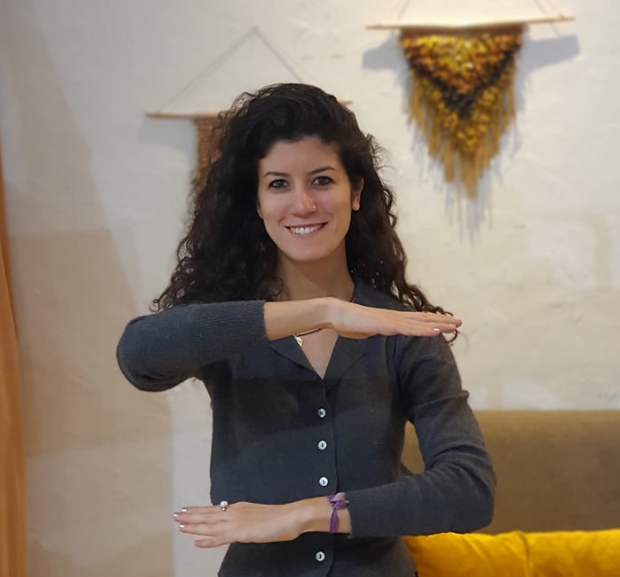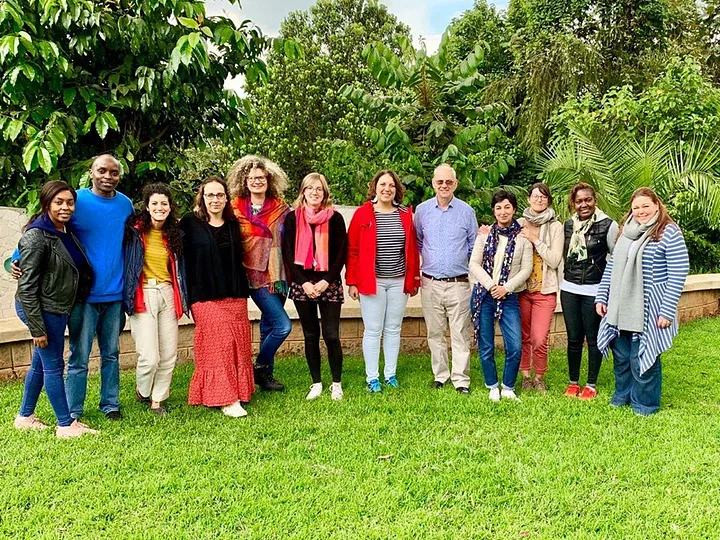We are still trying to come to terms with the new normal which for many of us is working from home. With our team spread out across the Middle East, North Africa, sub-Saharan Africa and the UK, we’re trying our best to stay connected and support participants currently engaged in our mentoring programmes. So how are we coping with all this? We spoke to a few team members who share their experiences. Read their stories below…
Sarah Abjeg, Senior Project Coordinator

Based in Morocco, Sarah leads on the delivery of THE NEXT SOCIETY mentoring programmes, currently ongoing in 7 countries in the Middle East and North Africa. As the only Mowgli team member based in Morocco, working remotely is not new to Sarah, however with her country having been on a complete lock-down since March 20th, it’s not business as usual. She shares her experience below.
“I’ve been working remotely for 6 years and I’m a strong believer in remote work. Many days, I’d be based in my home office, but I do go to co-working spaces and other locations as well. Clearly, I am less affected by the confinement but it is still a challenge. I must say, I do miss my daily coffee break and social gatherings. Like everyone, I am dealing with fear and uncertainty. I’ve had good conversations on both with my mentor.”
What’s the one change you feel should stay long after Corona virus in regards to how we work? “Ownership of what we do and how we do it. We’re now forced to reflect and focus on what is important. Outside work, it may be an opportunity to rethink relationships and gain perspective.”
What are you most grateful for? “These troubling days serve as a reminder to reconnect to our purpose or pursue one. I’m grateful for the commitment of medical workers and others working everyday to maintain safety, and necessary goods and services. I’m also grateful for having built a closely knit support system.”
Julie Billon – Grand, Project Manager
Based in Kenya, Julie leads on the delivery of the Imarisha Mentoring Programme and is also involved in business development opportunities for Mowgli in Africa. She shares her thoughts below.
“Over the past few weeks the Covid crisis has not only changed the way we work but also reinforced our desire to take mentoring online. I’m glad to be part of the team that is accelerating our online strategy. Through the Imarisha Programme, we have piloted Mowgli’s first online mentoring programme and have been able to train mentors, match them with mentees, and provide on-going support purely within an online environment. We are now being forced to be creative, to find new ways of delivering our programmes without loosing our core and that is to be 100% human, whilst cultivating a safe space for sharing and encouraging purposeful conversations to learn and grow. Above all, we know that this crisis will deeply affect our participants so we really try to go the extra mile to give them our support, on how to continue with mentoring in times of crisis. We’re also exposing them to as many ecosystem support services as we can in form of webinars, learning resources and more.”
What does a working day in your life look like now that you’re working from home? “It’s not easy to juggle between work, taking care of the home and home schooling especially with 2 children under the age of 7. Zoom has become ingrained in our professional and personal lives as we use it for work, school assignments. For outside exposure, we’re trying our best to call my children’s friends so they can still have some external contacts, and keep in touch with family and friends based in France, so that makes for quite some calls!”
What has been your greatest learning during this period? “Because we spend so much time in front of our screens, I’m learning the importance of structure especially for activities outside work. It’s important to have a routine in place and make time for physical activity both for the kids and the adults. I’m also learning that we can find beauty in things that we easily take for granted. I take time now to really observe what’s in my garden i.e. birds, insects, plants and photograph them.”

